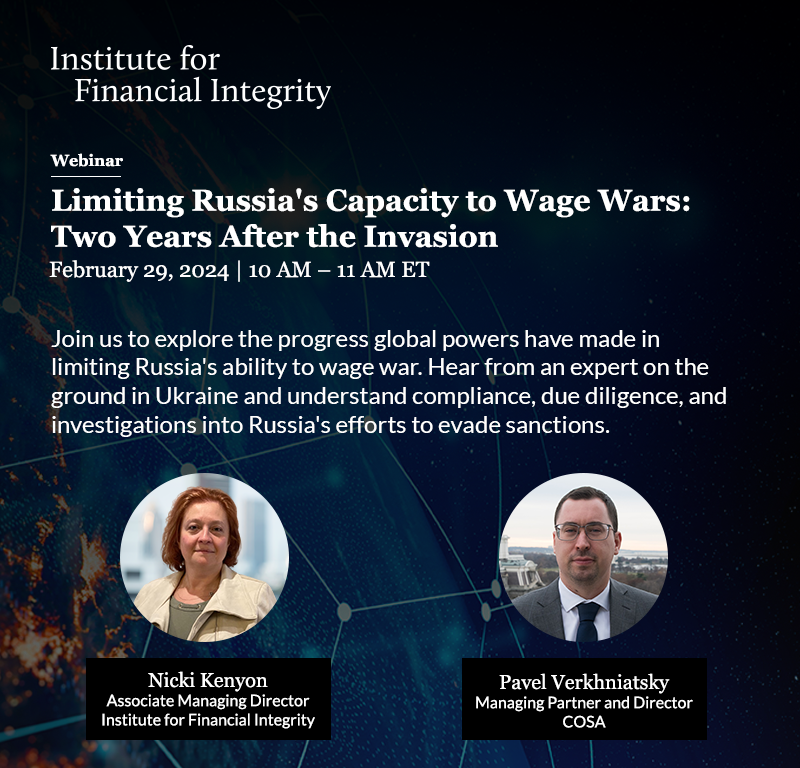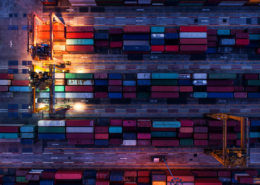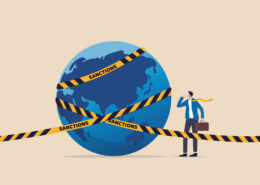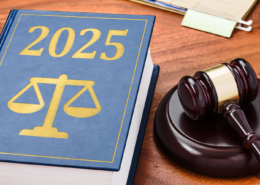A Timeline of US, EU, and UK Sanctions on Russia in 2023
📅 January 3, 2024
📅 January 3, 2024
The EU extends economic sanctions on Russia targeting specific sectors of the economy, including trade, finance, and technology, until July 31, 2023.
A G7-led coalition, which includes the United States, United Kingdom (UK), and European Union (EU), sets a $100 per barrel price cap for oil products that trade at premium to crude (e.g., diesel) and $45 per barrel for products that trade at a discount to crude (e.g., fuel oil).
The EU imposes a ban on all Russian refined oil products, including gasoline and diesel fuel.
UK sanctions six entities providing military equipment to Russia and eight individuals and one entity connected to financial networks that help Kremlin elites.
On the first anniversary of Russia’s invasion of Ukraine, the United States and United Kingdom, in coordination with G7 partners, implemented new sanctions against some key revenue-generating sectors of the Russian economy, including US sanctions on Russia’s metals and mining sector.
The EU imposes its 10th package of Russian sanctions targeting 120 individuals and entities, including Russian senior government officials and military leaders, as well as proxy Russian authorities in occupied territories in Ukraine.
The EU extends sanctions against 1,473 individuals and 205 entities until September 15, 2023. The restrictive measures include travel restrictions, asset freezes, and a ban on making funds or other economic resources available to the sanctioned individuals and entities.
The United States and UK implement new sanctions targeting financial networks that were helping Russian billionaires evade sanctions.
The EU adds Wagner Group and media outlet RIA FAN to the sanctions against Russia that were extended on March 13.
The UK announces new sanctions on Russian diamonds, metals, and military-industrial complex, building on previous bans of Russian iron and steel.
The United States imposes sanctions on 22 individuals and 104 companies in the energy sector as part of an agreement with G7 Leaders.
The UK imposes new sanctions targeting exports from Belarus in order to prevent Russia’s efforts to evade sanctions.
The UK introduces legislation to maintain sanctions on Russia until Moscow pays compensation to Ukraine, and creates a mechanism for sanctioned individuals to donate frozen funds to Ukrainian reconstruction.
The EU announces its 11th package of sanctions on Russia that includes measures to impede Russian sanctions evasion, prohibit the transit of goods and technologies through Russia, and tighten export restrictions. The package also sanctions 71 individuals and 33 entities.
The EU adds seven individuals and five entities to its Russia sanctions list for conducting a digital information manipulation campaign that spread misinformation and propaganda supporting Russia’s aggression in Ukraine.
The UK sanctions 22 individuals and businesses outside of Russia that are supporting Russia’s invasion of Ukraine. The sanctions target businesses located in Türkiye and Dubai, and individuals located in Slovakia, Switzerland, and Iran. It also sanctioned three Russian companies that are operating in the electronics sector and providing products vital to producing military equipment.
The United States sanctions four investors of Alfa Group, one of Russia’s largest financial and investment conglomerates, and the Russian Union of Industrialists and Entrepreneurs.
The EU extends sanctions on Russia until March 15, 2024, including travel restrictions, assets freezes, and a ban on making resources available to sanctioned individuals and entities.
The United States announces sanctions on over 70 entities and individuals associated with Russian energy and industrial production and Russian sanctions evasion. The sanctions target Russian automotive manufacturers and investment companies, as well as companies based in Türkiye, Finland, and the UAE.
The United States imposes new sanctions targeting Russia’s energy production, export capacity, metals and mining sector, and defense industry. The sanctions include restrictions on Russian banks, technology companies, and natural gas companies. They also contain new measures addressing Russian sanctions evasion techniques, sanctioning companies operating in China, Türkiye, and the UAE.
The United Kingdom sanctions 29 individuals associated with Russian gold and oil networks, including Russia’s largest gold producers. The announcement also warns of Russian evasion techniques used in the gold industry and the National Crime Agency issues an alert on the subject.
The United States sanctions nine entities and five individuals based in Russia, Belgium, Cyprus, Sweden, Hong Kong, and the Netherlands for their involvement in procuring electronics with military applications for Russian end-users.
The UK announces sanctions targeting 46 individuals and entities for supplying and funding Russia’s military supply chain, including businesses in Belarus, China, Serbia, Türkiye, the UAE, and Uzbekistan.
The United States imposes sanctions on more than 150 individuals and entities supplying Russia’s military-industrial base after meeting and discussing with G7 Leaders a week prior.
The UK introduces new measures to prohibit correspondent banking for some lenders, including an asset freeze on one of Russia’s biggest lenders, as well as a ban on the import of certain Russian metals.
The EU announces its 12th package of Russia sanctions targeting mainly Russian military and defense sectors in an effort to make evading sanctions more difficult for Russia. The package designates nearly 140 individuals and entities and includes restrictions on the import of Russian diamonds, tighter export restrictions, and the country’s IT sector.
President Biden issues Executive Order (EO) 14114 authorizing OFAC to impose sanctions on foreign financial institutions that facilitate significant transactions on behalf of persons designated for operating in key sectors of the Russian economy, or that involve Russia’s military-industrial base. This EO also prohibits the importation of products that have been processed or substantially transformed in third countries, such as Russian seafood.
The Institute for Financial Integrity explored the progress global powers have made in limiting Russia’s ability to wage war. IFI’s Nicki Kenyon and Pavel Verkhniatsky, Managing Partner of Ukrainian due diligence and corporate intelligence firm COSA, will discuss two years of sanctions, restrictions, and other measures countries around the world have implemented after Russia’s invasion of Ukraine in February 2022.
Topics up for discussion will included:











 A Pivotal Year for Virtual Assets – 2023 Highlights
A Pivotal Year for Virtual Assets – 2023 HighlightsThis site uses cookies. By continuing to browse the site, you are agreeing to our use of cookies.
Accept settingsHide notification onlySettingsWe may request cookies to be set on your device. We use cookies to let us know when you visit our websites, how you interact with us, to enrich your user experience, and to customize your relationship with our website.
Click on the different category headings to find out more. You can also change some of your preferences. Note that blocking some types of cookies may impact your experience on our websites and the services we are able to offer.
These cookies are strictly necessary to provide you with services available through our website and to use some of its features.
Because these cookies are strictly necessary to deliver the website, refusing them will have impact how our site functions. You always can block or delete cookies by changing your browser settings and force blocking all cookies on this website. But this will always prompt you to accept/refuse cookies when revisiting our site.
We fully respect if you want to refuse cookies but to avoid asking you again and again kindly allow us to store a cookie for that. You are free to opt out any time or opt in for other cookies to get a better experience. If you refuse cookies we will remove all set cookies in our domain.
We provide you with a list of stored cookies on your computer in our domain so you can check what we stored. Due to security reasons we are not able to show or modify cookies from other domains. You can check these in your browser security settings.
These cookies collect information that is used either in aggregate form to help us understand how our website is being used or how effective our marketing campaigns are, or to help us customize our website and application for you in order to enhance your experience.
If you do not want that we track your visit to our site you can disable tracking in your browser here:
We also use different external services like Google Webfonts, Google Maps, and external Video providers. Since these providers may collect personal data like your IP address we allow you to block them here. Please be aware that this might heavily reduce the functionality and appearance of our site. Changes will take effect once you reload the page.
Google Webfont Settings:
Google Map Settings:
Google reCaptcha Settings:
Vimeo and Youtube video embeds:
You can read about our cookies and privacy settings in detail on our Privacy Policy Page.
Privacy Policy